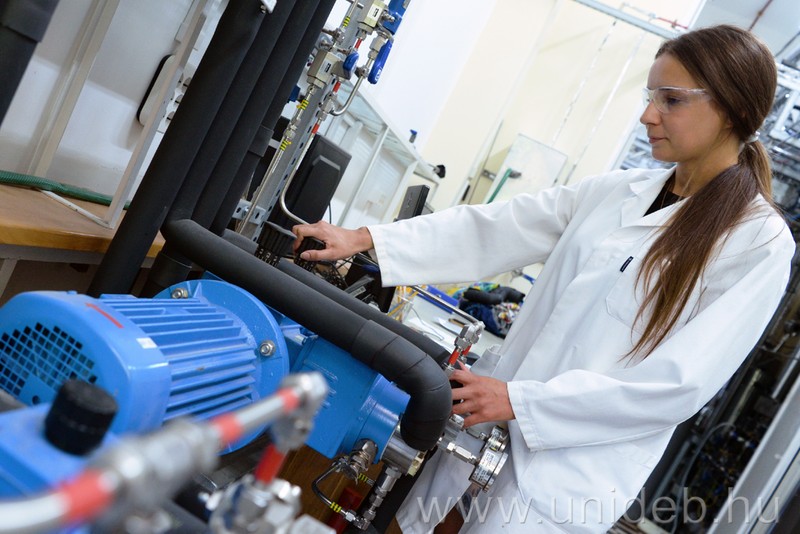The researchers of the Faculty of Science and Technology of the University of Debrecen are participating in an international space technology project within the framework of an EU HORIZON tender: the specialists will develop and manufacture special polymer aerogels for thermal insulation of space vehicles in the program with a total budget of 3 million euros, which will start in November, the university’s press center announced on Friday.
According to their announcement, they have been researching aerogels for 17 years at the faculty’s department of inorganic and analytical chemistry. Aerogels are the world’s least dense solids, more than 90 percent air. They have a rare cross-linked structure, but at the same time they have a high load capacity, are resistant to heat, and can bind a large amount of liquid.
Aerogels can be used and used in a wide variety of ways, for example, they are also used as drug carriers and insulating layers. At the university, they built an experimental plant that meets the most modern expectations, which is suitable for producing aerogels for technological developments – indicated István Fábián, university professor, noting that the research group has been cooperating with the German Aerospace Center (DLR) since 2019, and at their request, they participate in an international project. In this, their task is to develop and manufacture special polymer aerogels for the thermal insulation of space vehicles.
Project manager József Kalmár added: that the James Webb space telescope launched in December is protected from solar radiation by a heat shield made by NASA. One of the goals of their project is to reproduce this by developing super-insulating aerogels.
90 percent of them are air, and the rest is extremely hard and resistant plastic. Very thin sheets must be made from this, coated and then layered, so it becomes a heat shield, explained the expert.
Aerogels can also be used for thermal insulation of containers used to store extremely low-temperature materials. József Kalmár explained that the strategic goal of the project, dedicated by the EU, is for Europe to be able to manufacture these insulation solutions for itself and not depend on the United States or China.
The announcement highlights: that a nine-member consortium is working on the implementation of the project, under the leadership of the German Aerospace Center (DLR), the European Union’s largest institution dealing with space research, in cooperation with several prominent Western European research institutes and industrial partners. The most important industrial participants of the consortium are ArianeGroup and Thales Alenia Space. These two companies are Europe’s largest producers of space vehicles (rockets, satellites, modules).
About 60 professionals will work on the project, and four researchers from the University of Debrecen will participate in the work, primarily chemists and chemical engineers with doctorate degrees. The three-year program starts in November, with a total budget of three million euros. If the project is successful, joint work can continue in research and production, they wrote.
hirek.unideb.hu / debreceninap.hu


















